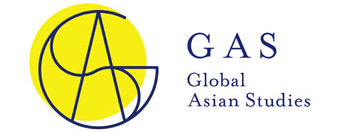CALL FOR APPLICATION (FINISHED)
The University of Tokyo Global Japan Studies Summer Program (Aug. 24-Sep. 2, 2016)
"AN INQUIRY INTO JAPAN’S POSTWAR"
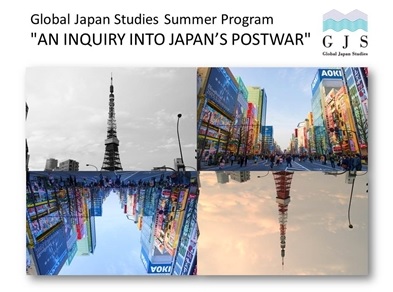
About the Program
Description:
Japan’s postwar period is most often described in terms of four decades of high economic growth followed subsequently by the recent recession dubbed “the lost two decades” (1990-present). Japan’s postwar, however, points to a far more complicated and ongoing process of social, cultural, and political changes, which this program is set to explore.
Participants will be immersed in a ten-day intensive program of interdisciplinary academic lectures (in humanities, social sciences, and engineering) and talks by eminent public figures with illustrative life stories, as well as carefully planned fieldtrips in Tokyo and surrounding areas. Through a well-designed combination of on- and off-campus study, the program challenges participants to both critically analyze and actually experience specifically identified sociological and technological issues, such as sustainable urban planning and social stratification in relation to pop culture. These issues are key for understanding not only Japan’s postwar itself but also the larger world to which Japan is closely connected and of which Japan is intrinsically a part. Prominent professors like Profs. Shunya Yoshimi, Yasuo Kobayashi, and Akihiko Tanaka will lecture in this flagship program.
How to apply:
To apply, please go to the program’s online application portal by clicking on APPLY HERE below. All applications should be submitted at this portal. No paper submission is accepted.
All applicants should read Application Guideline before submitting your application.
Download Application Guideline
Summer Program Lecturers (in alphabetical order)
Yuki HONDA
(Professor of sociology of education, the Graduate School of Education, the University of Tokyo)
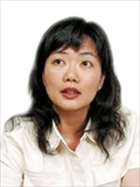 Prof. Honda’s study focuses on relations between education, work, and family. Since early 1990s, Japanese society has witnessed a conspicuous growth of discrepancies in relations between these three social systems, which include dysfunctions of ‘transition from school to work’, escalation of pressures on responsibilities of parents to educate their children, widening inequality in educational opportunities, and expansion of poverty among families with children. Prof. Honda explores causes and solutions to these problems, especially necessary reforms of education and new roles of the government and civil movements.
Prof. Honda’s study focuses on relations between education, work, and family. Since early 1990s, Japanese society has witnessed a conspicuous growth of discrepancies in relations between these three social systems, which include dysfunctions of ‘transition from school to work’, escalation of pressures on responsibilities of parents to educate their children, widening inequality in educational opportunities, and expansion of poverty among families with children. Prof. Honda explores causes and solutions to these problems, especially necessary reforms of education and new roles of the government and civil movements.
Link to Prof. Honda’s research information: http://www.p.u-tokyo.ac.jp/english/graduate-programs/social-sciences-in-education
Yasuo KOBAYASHI
(Professor, Aoyama Gakuin University in Tokyo; professor emeritus, the University of Tokyo)
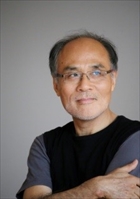 Graduating from the department of French at the University of Tokyo in 1974, Prof. Kobayashi worked under the influence of contemporary French philosophy on interdisciplinary criticism of art and literature. In 1981, he completed his doctorate in Semiotics at the University of Paris X-Nanterre, with a thesis on the philosophical problematic of time and text (jury members including Jean-François Lyotard and Jacques Derrida). He has published over eighteen books in Japanese on the subjects of literature, art, architecture, photography, philosophy, and science including: Origin and Root (Miraisha, 1991); Body and Space (Chikuma Shobō, 1995); The Optics of Representation (Miraisha, 2003); The Odyssey of Savoir (Tōkyō Daigaku Shuppankai, 2009), The Deconstruction of History (Miraisha, 2010), The Catastrophe of Being (Miraisha, 2012), Opera of the Japanese post-war Culture (Miraisha, 2016). Le Coeur/La mort (UTCP, 2007) is available in French and English. He has proposed a new university-level curriculum, and edited a number of anthologies on the subject of pedagogy. His translations from French include the works of Duras, Lyotard, Derrida, Levinas, et al. Prof. Kobayashi has been director of the University of Tokyo Centre for Philosophy (UTCP) since its creation in 2002 to 2015.
Graduating from the department of French at the University of Tokyo in 1974, Prof. Kobayashi worked under the influence of contemporary French philosophy on interdisciplinary criticism of art and literature. In 1981, he completed his doctorate in Semiotics at the University of Paris X-Nanterre, with a thesis on the philosophical problematic of time and text (jury members including Jean-François Lyotard and Jacques Derrida). He has published over eighteen books in Japanese on the subjects of literature, art, architecture, photography, philosophy, and science including: Origin and Root (Miraisha, 1991); Body and Space (Chikuma Shobō, 1995); The Optics of Representation (Miraisha, 2003); The Odyssey of Savoir (Tōkyō Daigaku Shuppankai, 2009), The Deconstruction of History (Miraisha, 2010), The Catastrophe of Being (Miraisha, 2012), Opera of the Japanese post-war Culture (Miraisha, 2016). Le Coeur/La mort (UTCP, 2007) is available in French and English. He has proposed a new university-level curriculum, and edited a number of anthologies on the subject of pedagogy. His translations from French include the works of Duras, Lyotard, Derrida, Levinas, et al. Prof. Kobayashi has been director of the University of Tokyo Centre for Philosophy (UTCP) since its creation in 2002 to 2015.
Akito MURAYAMA
(Associate Professor of Urban Planning, Department of Urban Engineering, School of Engineering, the University of Tokyo)
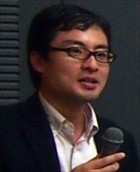 Prof. Murayama graduated from the department of urban engineering in the school of engineering at the University of Tokyo in 2004 and started to work at the University of Tokyo from April 2014. He received the City Planning Institute of Japan Paper Encouragement Award in 2004 (City Planning Institute of Japan) and the Landscape Installation Award in 2013 (Nihon Mokuzai Seisounen Dantai Rengokai 16th Wood Utilization Contest). His co-authored English publications include "Living Cities in Japan: Citizens' Movements, Machizukuri and Local Environments" (Routledge, 2007), "Innovations in Collaborative Urban Regeneration" (Springer, 2009) and "Basic and Clinical Environmental Approaches in Landscape Planning" (Springer, 2014). Prof. Murayama participates in many planning and community design practices across Japan.
Prof. Murayama graduated from the department of urban engineering in the school of engineering at the University of Tokyo in 2004 and started to work at the University of Tokyo from April 2014. He received the City Planning Institute of Japan Paper Encouragement Award in 2004 (City Planning Institute of Japan) and the Landscape Installation Award in 2013 (Nihon Mokuzai Seisounen Dantai Rengokai 16th Wood Utilization Contest). His co-authored English publications include "Living Cities in Japan: Citizens' Movements, Machizukuri and Local Environments" (Routledge, 2007), "Innovations in Collaborative Urban Regeneration" (Springer, 2009) and "Basic and Clinical Environmental Approaches in Landscape Planning" (Springer, 2014). Prof. Murayama participates in many planning and community design practices across Japan.
Link to Prof. Murayama’s research information: http://up.t.u-tokyo.ac.jp/%7emurayama/
Akihiko TANAKA
(Professor of International Politics, the Institute for Advanced Studies on Asia (IASA), the University of Tokyo)
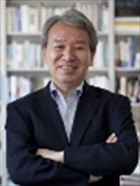 Prof. Tanaka specializes in theories of international politics, contemporary international relations in East Asia, and Japan’s foreign policy. He has numerous books and articles in Japanese and English including The New Middle Ages: The World System in the 21st Century (Tokyo: The International House of Japan, 2002). Professor Tanaka received the medal of honor with purple ribbon (shiju hosho) for his academic achievements in 2012. He was director of the Institute for Advanced Studies on Asia in 2002-2006, Executive Vice President of the University of Tokyo in 2009-2011, and Vice President there in 2011-2012. He served as President of the Japan International Cooperation Agency (JICA) from 2012 to 2015. He was also Visiting Professor at Ruhr University, Bochum, Germany, in 1986, and a Senior Associate Member at St Antony's College, Oxford, from 1994 to 1995.
Prof. Tanaka specializes in theories of international politics, contemporary international relations in East Asia, and Japan’s foreign policy. He has numerous books and articles in Japanese and English including The New Middle Ages: The World System in the 21st Century (Tokyo: The International House of Japan, 2002). Professor Tanaka received the medal of honor with purple ribbon (shiju hosho) for his academic achievements in 2012. He was director of the Institute for Advanced Studies on Asia in 2002-2006, Executive Vice President of the University of Tokyo in 2009-2011, and Vice President there in 2011-2012. He served as President of the Japan International Cooperation Agency (JICA) from 2012 to 2015. He was also Visiting Professor at Ruhr University, Bochum, Germany, in 1986, and a Senior Associate Member at St Antony's College, Oxford, from 1994 to 1995.
Shigeki UNO
(Professor, the Institute of Social Science, the University of Tokyo)
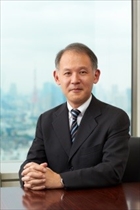 Prof. Uno’s major fields of research are history of political thought and political philosophy. His prolific publications in both Japanese and French include How to Make Democracy? (Chikumashobo, 2014) and A History of Western Political Thought (Yuhikaku, 2014) as well as articles in major academic journals: “Re-integration of Liberalism and Republican Liberty,” Shiso, 965, 2004, pp.84-101, and “Les idées politiques du Japon de l'époque moderne”, Jean-Francois Sabouret (ed.), La Dynamique du Japon, Paris, Saint-Simon, 2005, pp.83-92. His current research topics include: (1) Democracy and Religion; (2) Labor, Local Governance and Hope in Contemporary Japan; (3) Contemporary Political Philosophy in the Comparative Perspective: America, France and Japan; (4) History of French Political Thought in 19th century.
Prof. Uno’s major fields of research are history of political thought and political philosophy. His prolific publications in both Japanese and French include How to Make Democracy? (Chikumashobo, 2014) and A History of Western Political Thought (Yuhikaku, 2014) as well as articles in major academic journals: “Re-integration of Liberalism and Republican Liberty,” Shiso, 965, 2004, pp.84-101, and “Les idées politiques du Japon de l'époque moderne”, Jean-Francois Sabouret (ed.), La Dynamique du Japon, Paris, Saint-Simon, 2005, pp.83-92. His current research topics include: (1) Democracy and Religion; (2) Labor, Local Governance and Hope in Contemporary Japan; (3) Contemporary Political Philosophy in the Comparative Perspective: America, France and Japan; (4) History of French Political Thought in 19th century.
Link to Prof. Uno’s research information: http://www.iss.u-tokyo.ac.jp/division/uno_e.html
Shunya YOSHIMI
(Professor of Sociology, Cultural Studies, and Media Studies, the Graduate School of Interdisciplinary Information Studies, the University of Tokyo; Vice-President of the University of Tokyo)
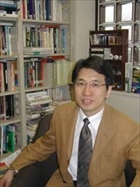 A leading scholar in the field of Media and Cultural Studies in contemporary Japan, Prof. Yoshimi is the author of many books on cultural theory, urban culture, international exposition, media culture, information technology, the emperor system, and Americanization in modern Japan and East Asia. He is a member of the executive committee of Inter-Asia Cultural Studies (Routledge), editorial board of Cultural Studies (Routledge), associate editors of Theory, Culture & Society (Sage), and the editorial advisory board of Japanese Studies (Carfax Publishing). Publications in Japanese include Dramaturgy in the City: A Social History of Popular Entertainments in Modern Tokyo (Kobundo, 1987), The Politics of Exposition: Imperialism, Commercialism and Popular Entertainment (Chuokoronsha, 1992), Cultural Sociology in the Media Age (Shinyosha, 1994), Voice of Capitalism: The Social Construction of Telephone, Gramophone and Radio in Japan (Kodansha, 1995), Expo Syndrome: Postwar Politics and Cultural Struggle in Postwar Japan (Chikuma Shobo, 2005), Pro-America, Anti-America: Political Unconsciousness in Postwar Japan (Iwanami Shoten, 2007), etc.
A leading scholar in the field of Media and Cultural Studies in contemporary Japan, Prof. Yoshimi is the author of many books on cultural theory, urban culture, international exposition, media culture, information technology, the emperor system, and Americanization in modern Japan and East Asia. He is a member of the executive committee of Inter-Asia Cultural Studies (Routledge), editorial board of Cultural Studies (Routledge), associate editors of Theory, Culture & Society (Sage), and the editorial advisory board of Japanese Studies (Carfax Publishing). Publications in Japanese include Dramaturgy in the City: A Social History of Popular Entertainments in Modern Tokyo (Kobundo, 1987), The Politics of Exposition: Imperialism, Commercialism and Popular Entertainment (Chuokoronsha, 1992), Cultural Sociology in the Media Age (Shinyosha, 1994), Voice of Capitalism: The Social Construction of Telephone, Gramophone and Radio in Japan (Kodansha, 1995), Expo Syndrome: Postwar Politics and Cultural Struggle in Postwar Japan (Chikuma Shobo, 2005), Pro-America, Anti-America: Political Unconsciousness in Postwar Japan (Iwanami Shoten, 2007), etc.
Link to Prof. Yoshimi’s research information: http://itasia.iii.u-tokyo.ac.jp/yoshimi_shunya.html
Summer Program GJS Faculty Members:
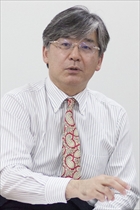
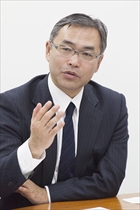
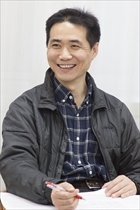
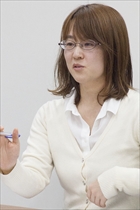
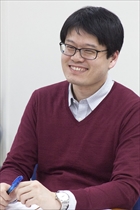
Shigeto SONODA
(Professor, Graduate School of Interdisciplinary Information Studies/Institute for Advanced Studies on Asia)
Takahiro NAKAJIMA
(Professor, Institute for Advanced Studies on Asia)
Yijiang ZHONG
(Associate Professor, Institute for Advanced Studies on Asia)
Yoko NII
(Assistant Professor, Institute for Advanced Studies on Asia)
Chung-Hee RYU
(Project Researcher, Institute for Advanced Studies on Asia)
Links
The University of Tokyo
Institute for Advanced Studies on Asia (IASA)
Global Japan Studies website
USTEP
UTokyo graduate programs offered in English (ITAsia, IHS, School of Science, etc.)
UTokyo School of Engineering
Program Host Institution: Institute for Advanced Studies on Asia
Program Organizer: Global Japan Studies (GJS) Research Network
Program Committee Advisers: Prof. Sonoda Shigeto, Prof. Nakajima Takahiro
Secretariat: Prof. Nii Yoko, Prof. Zhong Yijiang
Contact:
Prof. Nii Yoko (person in charge)
gjs[at]ioc.u-tokyo.ac.jp
Tel: (81)3-5841-5891
Fax: (81)3-5841-5898
Global Japan Studies
The Global Japan Studies at the University of Tokyo is an interdisciplinary and multilingual network of research and education on Japan. It seeks to bring together Japanese studies overseas and studies of Japan within Japan.



